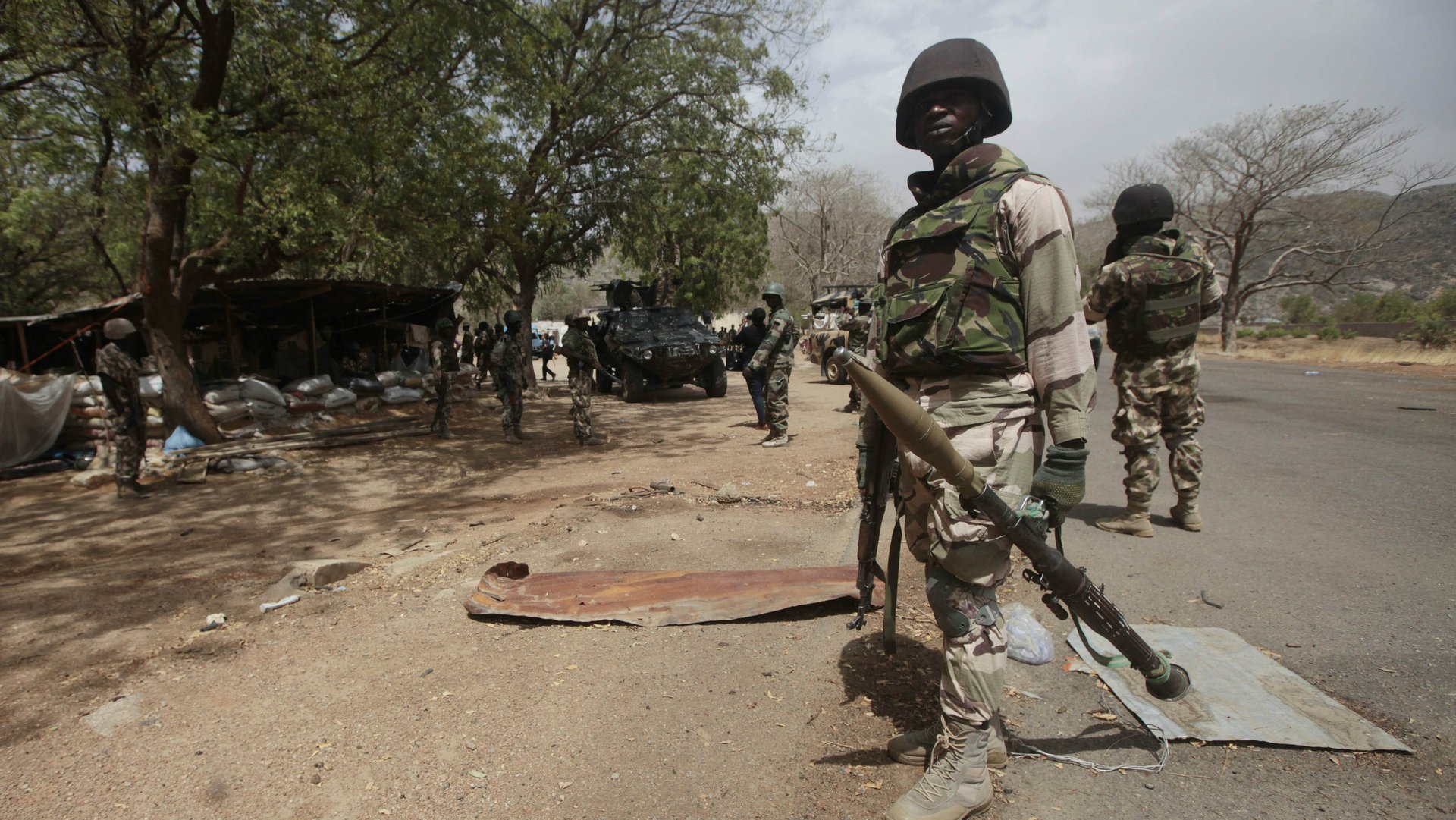Nigeria’s army will not defeat Boko Haram in time for Buhari’s December deadline
Throughout his presidential campaign and upon taking office earlier this year, president Buhari has repeatedly stated ending the Boko Haram insurgency in Nigeria as a major target.


Throughout his presidential campaign and upon taking office earlier this year, president Buhari has repeatedly stated ending the Boko Haram insurgency in Nigeria as a major target.
In his first weeks in office, Buhari announced an immediate relocation of the military command centre to the North East where the insurgency was concentrated and had led to the deaths of tens of thousands and the displacement of millions. Shortly afterwards, president Buhari fired military chiefs who had been accused of being complicit in arms procurement dealings. Buhari also visited neighboring countries and backed a multi-national joint task force to fight the Islamist sect, committing $100 million to the fight.
Giving the country high hopes, Buhari also announced an ambitious December deadline for the military to end the Boko Haram insurgency. But, as the New Year approaches, it appears the military is likely to miss its target to stamp out the sect.
The early signs came weeks into Buhari administration as the sect stepped up bombings in the north east and eventually hit Abuja, the seat of power, in October. The military chiefs also informed the president that the deadline might be missed due to weather concerns hindering the fight.
Recently, Boko Haram’s activities reached a nadir as news emerged that the sect has carried out another mass abduction of girls even though the country is yet to recover more than 200 school girls kidnapped in Chibok last year.
Ryan Cummings, security analyst with Red24, says the deadline had always been a tall order as Boko Haram can no longer be regarded as a local problem. “Buhari setting a deadline for defeating Boko Haram is a bit disingenuous,” he said.
“The insurgency is no longer a Nigerian problem and has since developed to a quandary of regional proportions. As such, any unilateral actions and associated timelines provided by Buhari is worthless if they are not backed and supported by regional countries such as Cameroon, Niger and Chad where Boko Haram has also established an operational footprint,” he told Quartz.
It’s worth noting there have been some key victories against the sect. The military have reported multiple raids on Boko Haram hideouts, and Buhari’s revamp of the military has uncovered large-scale arms procurement fraud resulting in the arrest of the country’s former national security adviser. With transparency now enshrined in the new administration’s dealings, the army could begin to reap the rewards of better equipment and infrastructure, previously a major impediment in the fight against Boko Haram.
Regardless, it remains difficult to predict when the Boko Haram will truly end according to Cummings. “There are many dynamics at play which makes it very difficult to assess when the insurgency will be truly be ended. But an imminent end to the Boko Haram crisis seems a very unlikely development at this stage.”